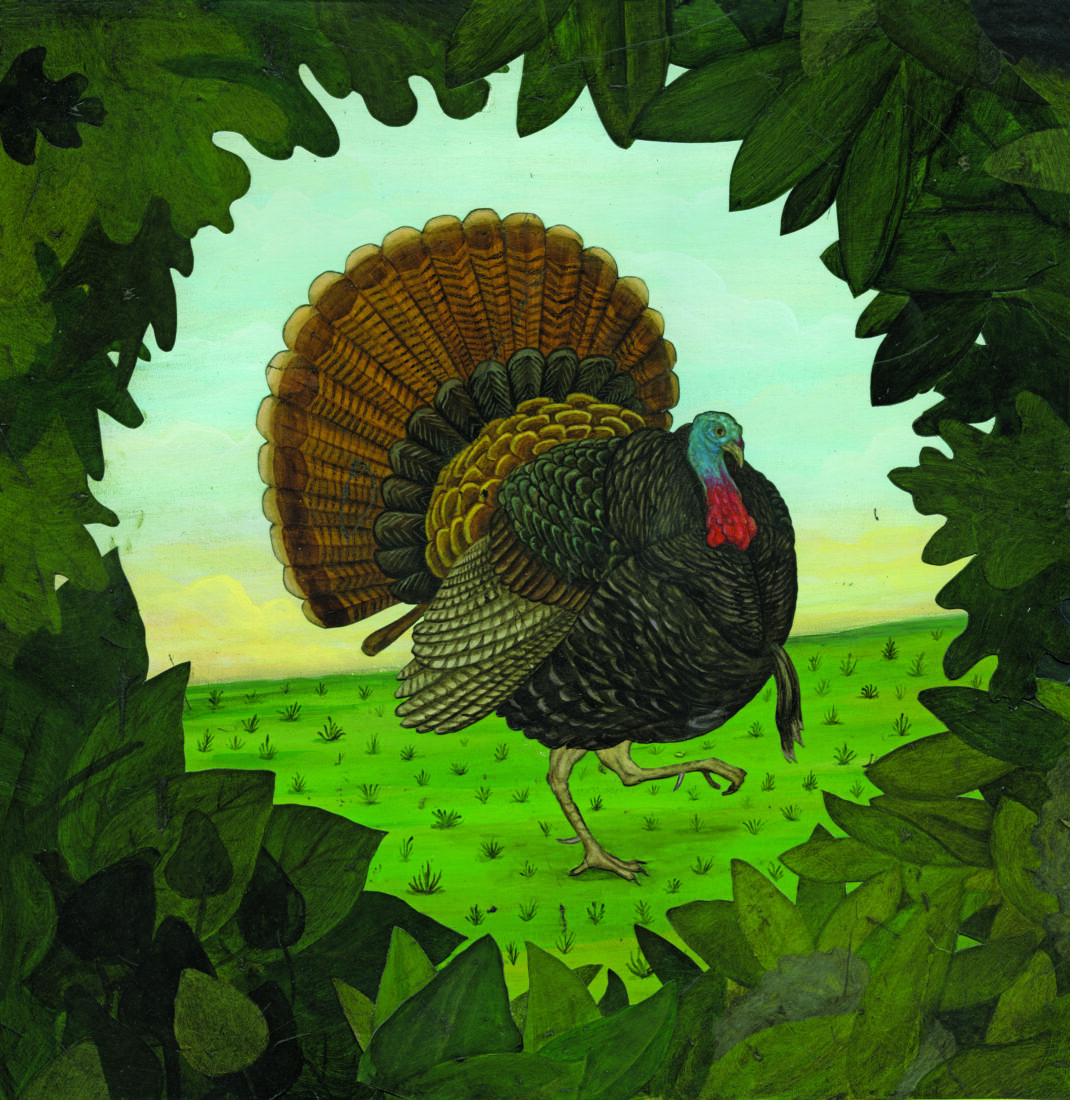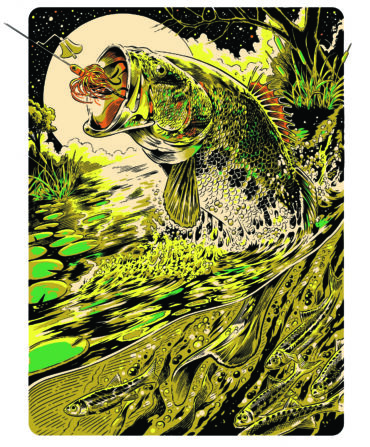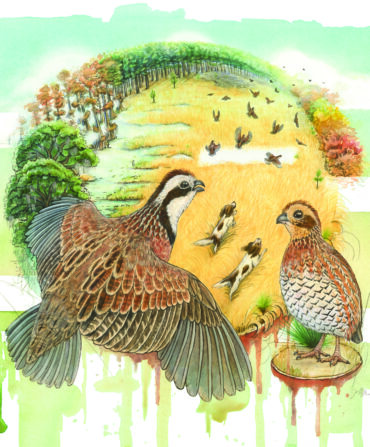One of the worst mistakes a turkey hunter can make is to become obsessed with a single bird. You spend a month in a chess match with one gobbler who beats you again and again, and before you know it, the season is over. Mountain turkeys, in particular, seem to have a propensity for whittling hunters down to nothing. But if time has proved anything, it is that I am a glutton for punishment.

The first turkey to ever consume me made his living on a small stretch of flat ground along the side of a mountain, a bench no bigger than a basketball court. I found him while shed hunting a section of North Carolina’s Nantahala National Forest. He roosted a good two-hour walk from the truck straight uphill on a track that left your heart pounding, legs shaking, and lungs on fire.
When season finally came, I left the house at 3:30 in the morning to reach the trailhead by four. It was a year when spring fell late so that I hiked in full dark beneath trees budding but not yet leafed. Stars sparked and glinted through that loose weave of limbs like bottle glass broken over dark, wetted stone. There was a trail to follow, a path cut through laurel that at times proved too crowded and tangled for me to stand upright. In the valley, a creek carved its name, and for the first mile or so, the roar of water overrode all other sound.
The place where the creek forked marked the edge of his territory. The moment you crossed that left-hand prong and slipped through the rhododendron, you were visible from his roost. I reached that point right as the first birds—chickadees and vireos, titmice and wrens—whistled songs they knew from memory. The light was already coming up. I was late, and I knew it, but there was no turning back.
The forest opened into an old pasture overgrown with broom sedge slick with dew that wet me to my thighs. I slinked out farther from the wood line, and right then I heard the flap and crash of wings breaking out of a treetop. When I looked up, I saw that bird sail from one mountain to another like a paper plane across an empty hallway, a quarter mile covered without a single stroke of wing. For at least a week, I tried to beat him off the limb, and every morning he caught me. I’d show up just as light started to break, and he would float across that valley without so much as a whisper.
Wild turkeys are gliders more than fliers. For a twenty-pound tom, getting off the ground is a loud and laborious endeavor. Once a turkey gains enough elevation to set its wings, however, it will flat-out leave this country. In that way, mountain turkeys are born at an advantage. Whereas the flatland bird must sprint and flap and fight like hell for enough air to coast a hundred yards to safety, most times the mountain bird need only jump.
I remember a morning many years ago driving a Forest Service road to fly-fish a high mountain stream for natives. As I rounded a bend, I met a flock of six or eight hens dusting themselves in the gravel. One by one they strolled to the edge of the road, hopped off, and stretched their wings. When the last hen took flight, a bobcat tore off the bank above the road, its body fully stretched as it leaped like a wide receiver for an overthrown football.
The bobcat landed in the center of the road without having touched a feather, and as it came down, it turned and stared a hole through me. I’ll never forget the look or the way I hoped it could understand me as I mouthed, I’m sorry. There was no telling how long the stalk had taken, and just like that it was over. Those birds simply stepped off into oblivion and landed some place a half day away.
By mid-season, I’d wised up and began arriving an hour or so after fly down so the tom wouldn’t spot me from the limb. Day after day I tried every setup I could think of, every turkey call I owned, and I never once even heard him gobble. The last week it finally hit me. The only thing I knew for certain was where he roosted. I decided to go in midafternoon and be waiting inside his house when he came home.
It was early May by then, and the trees were nearly leafed out. The bench was open and flat, a healthy mix of hardwoods—red oak and hickory, white oak and poplar. The back edge was nearly vertical and littered with boulders the size of cars. Nothing could come down from above. From the tree, he could see everything below.
A blowdown had fallen right next to a poplar that was twice the width of my shoulders. I set up against the trunk while sweat ran down my neck and chest. Gnats whirred about my eyes, but I did not move. The sun had dropped behind the ridge when I finally heard footsteps. In just a second, I saw his bright red head periscope over the edge of the flat.
For a long time, that bird stood there and studied the place. He seemed to be checking that the world was in order, that everything was just how he’d left it. Finally he stepped onto the bench and picked his way slowly into range. He was tall and lean, his body an iridescent black. He scratched back leaves and pecked the ground, his long, thin beard the width of a finger swaying from his chest like the pendulum of a clock.
The flat was narrow so that eventually his path led him in front of the gun. When he was straight down the barrel, he stopped and threw his head up as if it were a scene written in a play. He stood there, and I had every chance in the world to take him, but I didn’t so much as touch away the safety. My heart was pounding and I could not breathe.
A decade later, I can still feel the way the thermals fell down the side of that mountain like a shadow those last few minutes of light. He walked a wide circle around a white oak before he flew into the limbs and situated himself for the night. It was an hour more before the woods were dark enough to sneak away without spooking him. I crawled off the flat on hands and knees. I imagine he watched me. Deep down, I hope he knew.
See the other articles in our For the Love of the Game collection:
In Pursuit of the Ancient Tarpon of the Everglades, by Monte Burke
The Heart-Pounding Rapture of a Wood Duck Morning, by T. Edward Nickens
Chasing Chinook—and Family Memories—in the Waters of Alaska, by Kim Cross
A Quail Hunter’s Ode to the South’s Signature Game Bird, by Russell Worth Parker
A Love Letter to Largemouth Bass, by Charles Gaines








